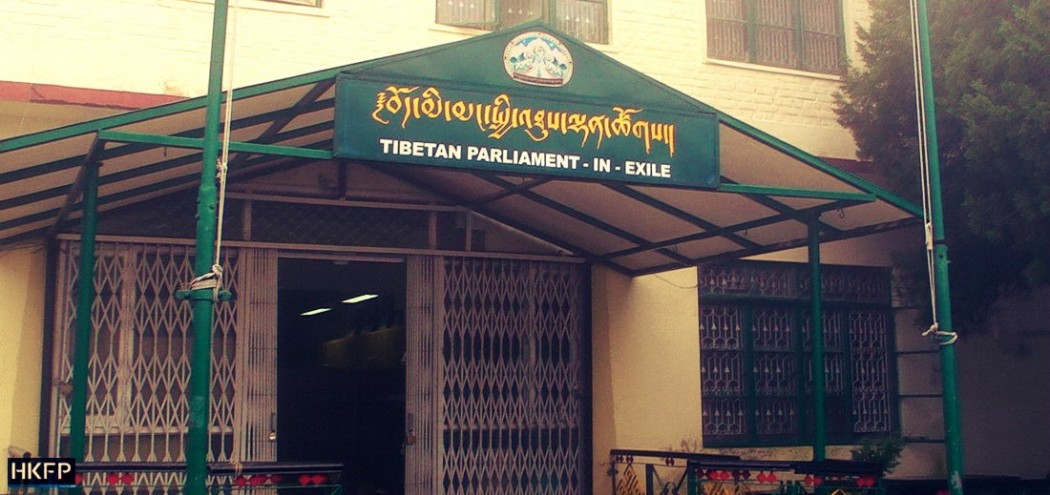Tens of thousands of exiled Tibetans voted Sunday for a new leader tasked with sustaining their struggle for greater autonomy in their Chinese-ruled homeland as the Dalai Lama retreats from the political frontline.
While Tibetans from across the world were set to vote, those in the picturesque Indian hill town of Dharamsala where the Dalai Lama lives started lining up at booths at 9:00 am (0330 GMT) to elect the next leader of the government-in-exile.

One by one, hundreds including monks and nuns scribbled the names of their favourite candidates on pieces of paper and slipped them into green ballot boxes before polls close at 5:00 pm.
The post of prime minister in exile was a low-profile role before the 80-year-old Tibetan spiritual leader devolved power in an attempt to lessen his own totemic status and foster a democratic setup to keep Tibet’s freedom movement alive after his death.
“Though His Holiness the Dalai Lama remains our leader of the nation in terms of guiding us in solving the Tibet issue, it is important that we vote and elect our political leader,” a 45-year-old monk, Jamyang, said after casting his vote.
The Dalai Lama announced his decision in March 2011, just days before the election of the incumbent prime minister — or Sikyong — Lobsang Sangay, who is standing again.
The 48-year-old Harvard-educated former academic is regarded as the front-runner, having already beaten off three of the four other candidates in a first round of voting last October.
Both he and his one remaining opponent, Penpa Tsering, 49, favour the “middle way” approach of the Dalai Lama that advocates seeking greater autonomy for Tibet peacefully.
In all, 88,000 Tibetans in 13 countries from Australia to the United States are registered to cast ballots for a prime minister and the 44-member parliament-in-exile.
Many voters, like Sangay, have lived all their lives in exile and never visited Tibet.
One of the eliminated candidates, Lukar Jam Atsok, spent time as a political prisoner in China and had threatened to make waves with his more aggressive policy of advocating complete independence.
On policy, there is relatively little to choose between Sangay and his remaining opponent, and opinions on the streets of Dharamsala were mixed in the run-up to Sunday’s vote.
Many said they would stick with Sangay. But some who voted for him in 2011 said they had been disappointed by his performance in office.
“I will vote for Penpa Tsering, who has decades of experience serving in the Tibetan government in exile and in the Tibetan community. He will have more substance,” said Lhadon, a 55-year-old woman who did not give her full name.
The results from Sunday’s voting are expected in April.
Shadow of Dalai Lama
Tsering was born in India and has served in the Tibetan parliament-in-exile based in Dharamsala for 10 years, where he is currently the speaker.
Whoever prevails can expect to remain in the shadow of the Dalai Lama, a Nobel peace laureate who remains the most potent rallying point for Tibetans, both in exile and in their homeland.
The Himalayan hill town has been home to him and thousands of Tibetan refugees since he fled Tibet in 1959 after a failed uprising against Chinese rule.
Despite the Dalai Lama’s status, many exiles said it was important to vote.

“The election is really important. It is a basic right of a citizen to vote and we take this opportunity as a blessing,” said Sonam, a 22-year-old Tibetan student in Nepal who did not give her full name.
She expressed hope the Nepal government would allow voting to go ahead after authorities confiscated ballot boxes in 2011, apparently under pressure from neighbouring China.
China has widely been seen as waiting for the Dalai Lama’s death, believing that the movement for Tibetan rights will not survive without its charismatic and world-famous leader.
The globe-trotting Buddhist monk raised concern among his millions of followers last year when he scrapped a tour of the United States for health reasons.
Asked about Sunday’s election, Chinese foreign ministry spokesman Lu Kang said Beijing had never recognised the government-in-exile and hoped other countries “will not provide any stage for Tibetan separatist activities”.
